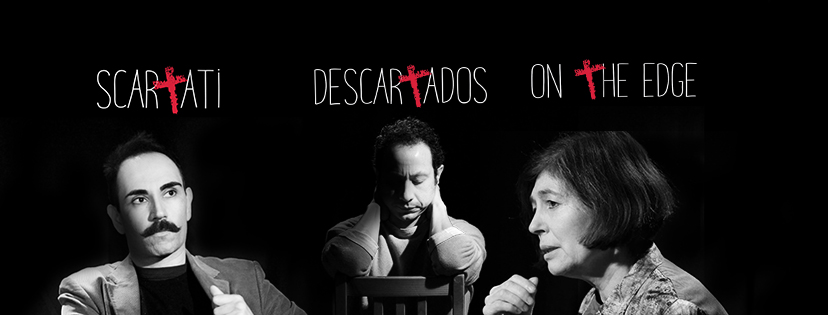 Discarded, outcast, crushed, seemingly with no escape: in their stories lie the inspiring sparks for this CSC Media production – a 20 minute video which recounts three true stories while maintaining anonymity. The protagonists who at the height of their pain come across a person – or rather the Person: Jesus. He too cried out in his abandonment on the cross, discarded by heaven and earth. They experience passing from death to life, from pain to love as expressed by some passages from Chiara Lubich which are included in the stories It is a project which was created thanks to a host of contributors. Featuring: Alessio De Caprio (Italy), Rafael Reyes Loyo (Mexico), and Sarah Finch (UK). Music by Sandro Crippa. Artwork by Roberto Cipollone (Bottega di Ciro, Italy). See trailer and more details at www.focolare.org/scartati. The video is available in three languages: Italian, Spanish and English.
Discarded, outcast, crushed, seemingly with no escape: in their stories lie the inspiring sparks for this CSC Media production – a 20 minute video which recounts three true stories while maintaining anonymity. The protagonists who at the height of their pain come across a person – or rather the Person: Jesus. He too cried out in his abandonment on the cross, discarded by heaven and earth. They experience passing from death to life, from pain to love as expressed by some passages from Chiara Lubich which are included in the stories It is a project which was created thanks to a host of contributors. Featuring: Alessio De Caprio (Italy), Rafael Reyes Loyo (Mexico), and Sarah Finch (UK). Music by Sandro Crippa. Artwork by Roberto Cipollone (Bottega di Ciro, Italy). See trailer and more details at www.focolare.org/scartati. The video is available in three languages: Italian, Spanish and English.
Closeness creates a real sense of family
Closeness creates a real sense of family




0 Comments